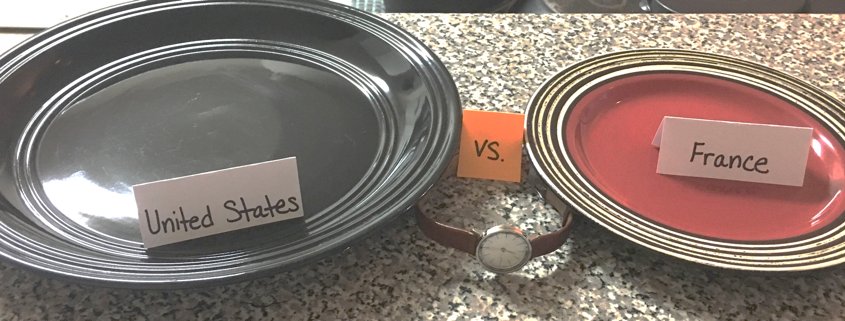The French Paradox
The French Paradox
Have you ever considered the American culture and its relationship to food? Furthermore, have you ever compared our view of food in the U.S. to another country’s view of food? There are some surprisingly interesting and vastly different approaches to food in other countries that are very foreign to the American mindset. A man named Paul Rozin researched this discrepancy, comparing the U.S. and France. He found that in our quest to get the best bang for our buck, we emphasize the value of our food (i.e. how much food do we get for how much we pay.) Additionally, the emphasis on value also includes our time spent eating. When comparing lunch breaks, Americans ate more food in less time. We may be able to claim a prize for this win…if it weren’t for the corresponding prevalence of disease resulting from this fast- and large-portion eating mentality.
So how is it that the French can experience less heart disease when their foods are seemingly richer, having calorically-dense creams, sauces, and red wines more often? They are more content with their food. Rozin actually found that they simply enjoyed their food more, all while being served less at a restaurant and not receiving portions so large that a take-home box is required. This, is the French Paradox. With all of our reduced-fat, fat-free, sugar-free versions of every food on the shelf, our culture has a poor relationship with food.
Perhaps we could move to France or learn how to speak French. Or perhaps, we could simply learn to enjoy our food more and slow down. Maybe all three…
If you’re interested in watching a short lecture by a professor from Yale University who discusses Rozin and his findings, follow the link below and start watching around 36:00.
http://oyc.yale.edu/psychology/psyc-123/lecture-6
-WW


